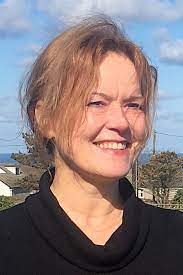
Christine Hauskeller is Professor of Philosophy at the University of Exeter, where she has worked for 20 years. She specializes in the philosophy of medicine and in moral and political philosophy using approaches from feminist theory and the Frankfurt School, as well as critical theory more generally. She is an expert on evidence production in clinical trials and in the study of complex relationships between economics, technology, politics, individual and societal needs, and ethics. Her research has focussed for a long time on the creation of facts, values, and power struggles in the validation of different ways of knowing. Concerned about the limited scholarly engagement with psychedelics, Christine has been exploring the different ways in which contemporary philosophy can address aspects of psychedelic experience and practice, including aesthetical, political-economic aspects, and animist world views, in turn how psychedelics can inform philosophical questions about the relationships of humans, society and nature. Christine has served on many expert panels and ethics commissions. Her publications include ten books and journal special issues, as well as many articles and chapters. She has co-founded the Exeter transdisciplinary research group on philosophy and psychedelics. Her recent book publications include The Matrix of Stem Cell Research (Routledge 2020) and Philosophy and Psychedelics. Frameworks of exceptional Experience (Bloomsbury 2022).
Colloquium Presentation: 26 November 2021
Introduction to Frankfurt School Critical Theory.
Colloquium Presentation: 29 June 2023 2.30-4.30 pm (Washington Singer 028, presenting in-person, hybrid event)
Power and Freedom in the Psychedelic Space
(Osiris Sinuhé González Romero with Christine Hauskeller)
Abstract
This first part of the Workshop will be led by Osiris Sinuhé González Romero.
This talk will first introduce the concept of cognitive liberty, the right to freedom of thought, reflection and updated to address the needs and demands of the 21st century. Then I will examine the concept of epistemic injustice to analyse the power relations that have influenced the lack of recognition of the philosophical uses of psychedelics, indigenous philosophies, and the research work done by women in this field of study. The participants are invited to discuss and use this theoretical framework in psychedelic research. The first section will conclude with a brief reflection on intercultural medicine and the difficulty of transferring the categories of illness between worldviews based on different epistemologies.
The second part of the Workshop will be led by Christine Hauskeller, University of Exeter
Abstract
Following on from the conceptual analyses, I will apply these concepts to clinical settings in the psychedelic medical space. The dominance of legislative powers controlling psychedelic experiences is increasingly underwritten by medical frameworks. These are part of the neoliberal order to reclassify, reform, and extract by both transforming plants into chemically identifiable substances and shaping individual and social perceptions according to normative disease categories. The use of psychedelic therapies in the clinical setting directly affect the mind and body. The experiences are tightly controlled and non-imaginary encounters with the outside world are prevented through the clinical design of set and setting. The dominance of the medico pharmaceutical complex aligned to legislative authority entraps psychedelics and psychedelic experiences in contemporary power structures.